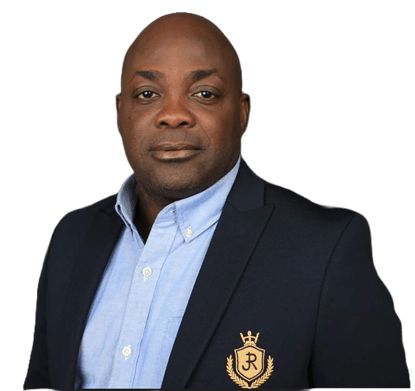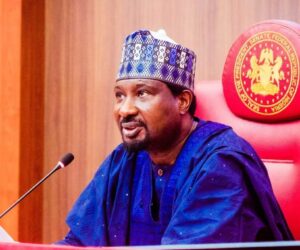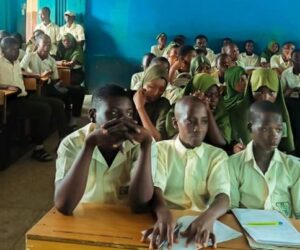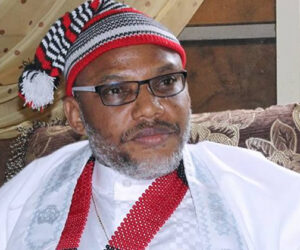6
Over 200 sustainability professionals, policymakers, and youth advocates from across Africa convened virtually for the African Sustainability Perspectives (ASP) 2025 Summit.
This landmark event highlighted the critical need for authentic Environmental, Social, and Governance (ESG) practices and accelerated the achievement of Sustainable Development Goals (SDGs) across the continent.
Organised by A4S Limited in collaboration with African Sustainability Perspectives, the six-hour virtual summit addressed the growing gap between sustainability commitments and measurable impact in Africa. Hosted by Edith Ugochukwu, COO of A4S Limited, the summit underscored the need to move beyond “performative ESG” and adopt genuine sustainability principles.
Dr. Orlando Odejide, Managing Partner of A4S and convener of ASP 2025, opened the summit with a strong message: “SDGs are not optional, but mandatory” for Africa’s development.
He stressed the importance of SDG 16 (Peace, Justice & Strong Institutions) as the foundational pillar for achieving all other goals.
He also announced A4S’s commitment to training 50,000 Africans on sustainability standards like ISO 53001 and IWA48 between 2026 and 2030.
While Africa holds vast potential, current SDG performance presents a concerning picture. Data presented at the summit revealed that most African countries score below 70% on SDG achievement metrics, highlighting the need for accelerated progress.
Adwoa Wiafe, Chief Corporate Services and Sustainability Officer at MTN Ghana, offered a compelling example of authentic ESG implementation, showcasing how sustainability is “not a nice-to-have but a survival strategy.”
MTN Ghana’s achievements, including sourcing 50% of its energy from solar power, achieving 42% female workforce representation, and eliminating single-use plastics , demonstrate the potential for African businesses to drive meaningful change.
Wiafe emphasised the crucial role of leadership in setting the tone, allocating resources, and modelling ESG values.
One of the summit’s most impactful sessions focused on distinguishing between genuine ESG and mere “appearance of ESG.” Mr Dapo Omolade, CEO of Hybrid Group Limited, challenged organisations to critically examine their practices, urging them to “build measurement capability before disclosure infrastructure” and focus on verified outcomes rather than aspirational claims.
Panel discussions explored the challenges in translating policy into tangible progress. Professor John Victor Mensah of the University of Cape Coast highlighted issues like poor infrastructure and resource management as hindering SDG performance.
Anne Ibrahim, Assistant Director at Nigeria’s National Bureau of Statistics, shared progress in SDG data collection and announced Nigeria’s adoption of the Inclusive Data Charter (IDC) to ensure comprehensive data collection.
Another panel focused on corporate leadership in driving authentic impact, emphasising the need for harmonised regulatory frameworks, tax incentives for SMEs, and aligning executive compensation with ESG outcomes.
Bhongolwethu Sonti, Regional Program Director for GRI Africa, introduced the concept of “double materiality” and revealed data about the lack of third-party ESG assurance among South African companies.
Samuel Efosa-Austin, Founder of ECO Africa and Tech for Good Africa, presented a vision for “Africa’s New Economy,” advocating for digital identities and platforms to track individual SDG activities and promote community-driven accountability.
The ASP 2025 Summit resulted in several concrete commitments, including: Training and Capacity Building: Offering free Sustainability Champions Certification and discounted ESG training and certification programs.
Strategic Partnerships: Bringing together key partners such as the Lagos Chamber of Commerce and Industry, GRI Africa, and SDG Youth Connect.
The summit also identified key challenges including weak enforcement of regulations, limited data availability, superficial compliance, low ESG literacy among SMEs, and the prevalence of green washing.
The summit concluded with a call to action for African organisations to embrace authentic sustainability that creates measurable impact for people and the planet.
Dr. Odejide reiterated that “When ESG becomes part of our corporate DNA; we will not only build stronger companies but a stronger and more sustainable Africa.”
With vast resources but significant challenges, the imperative for authentic sustainability in Africa is undeniable.
The ASP 2025 Summit demonstrated that despite the challenges, Africa possesses the knowledge, frameworks, and dedicated leadership necessary to forge a new path towards sustainable development. Organisers announced plans for a physical summit in 2026, signifying continued momentum in Africa’s sustainability journey.








